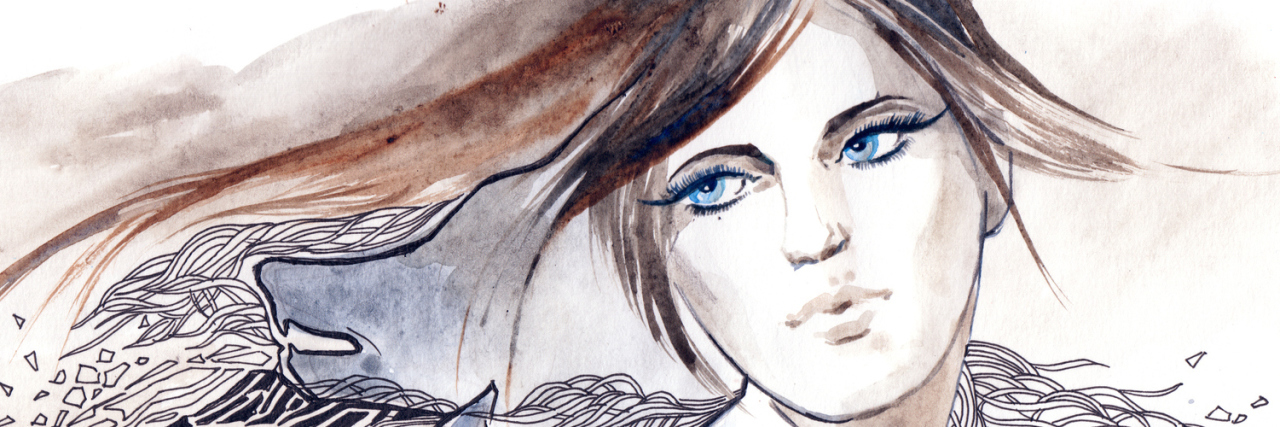The Harmful Question My Mental Health Team Asked Me About My Eating Disorder
Editor's Note
If you live with an eating disorder, the following post could be potentially triggering. You can contact the Crisis Text Line by texting “NEDA” to 741741.
“What was your lowest weight?”
These were the words that came from my therapist’s and psychiatrist’s mouths as I sat anxiously across from them. It took a certain kind of inner strength to confess I had struggled with an eating disorder in the past as we combed through my history. My eyes raked the floor as I responded, “I don’t know.” Shame bloomed in my chest.
You should have weighed less. They’ll laugh if you tell them. You can hardly call it an eating disorder.
Both of them gave me a look that said “Really,” as though they knew I was lying. I moved my eyes from the floor to meet their gaze. “I’m sorry, I don’t remember.” What I really wanted to say was, “It doesn’t matter.” I wish they were able to see how inflammatory this question was. I wish, as mental health professionals, they knew never to look to qualify a mental illness that thrives on comparison.
A large misconception about eating disorders is the idea that they revolve around weight. But not all eating disorders are diagnosed based on BMI. Eating disorders don’t care what you weigh, because no matter the number, it’ll never feel good enough. They should instead be delineated based on the emotions and thoughts fueling the behaviors.
My last relapse was over a year ago, yet when their words slapped my ears, I cringed. What if my weight wasn’t low enough in their books? What if they think I was making it up because I didn’t get below a certain weight? I sat across from them wishing instead that they asked me to describe what my eating disorder was like for me.
Because eating disorders are just that — individual. No two look the same, but why do we categorize them together? If you struggle with an eating disorder and you weigh more than someone else, you are valid. If you struggle with an eating disorder that doesn’t completely “fit” a diagnosis, you are valid. If you struggle with an eating disorder and someone else is “sicker” than you, or has struggled for longer than you, or in any way seems more “worthy” than you, you are valid.
I spent years avoiding the “eating disorder” diagnosis because I never felt my struggle was “bad enough” to warrant that label. I used terms like, “has problems with food” or “body conscious” and subsequently caused irrevocable damage to my body because of the delay in getting treatment.
Asking about my lowest weight gives a helpful scope for the severity of my behaviors, but it also causes harm. Eating disorder severity, for the majority of eating disorders, have very little correlation to weight. There isn’t a “look.” My body has changed a lot since I was in the depth of my eating disorder, and when I’m asked about my lowest weight, I feel the need to defend myself.
Even now, my eating disorder “voice” whispers in my ear, coaching me back into old behaviors. So instead of asking how low my weight was or how much I engaged in a certain behavior, ask about the thoughts and feelings that still follow around in my now-healthy body. Because if you struggle with disordered eating in any capacity, you are valid.

